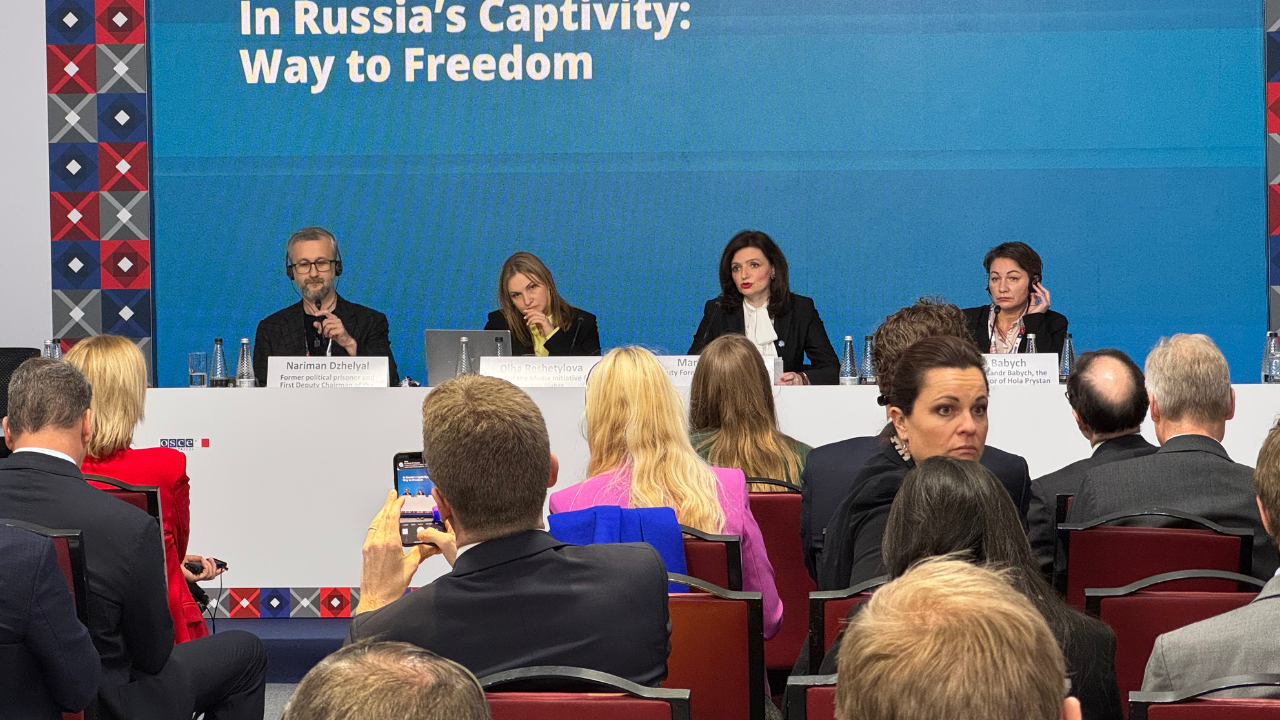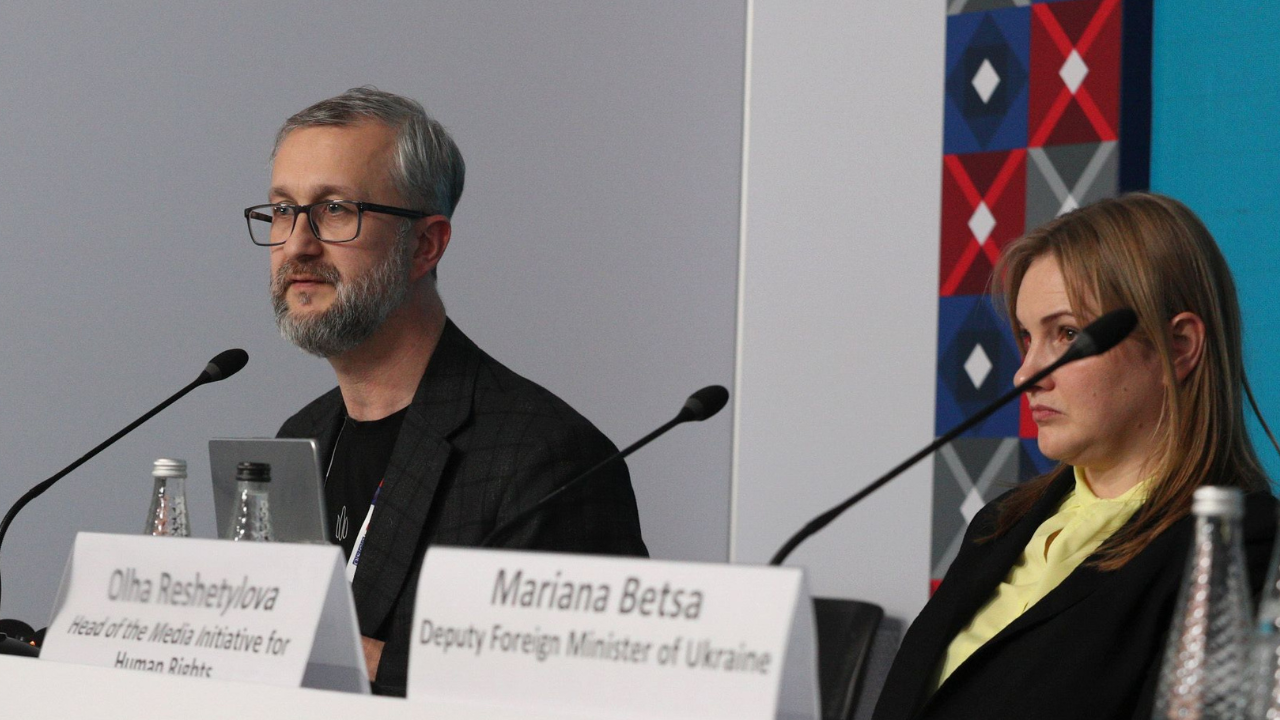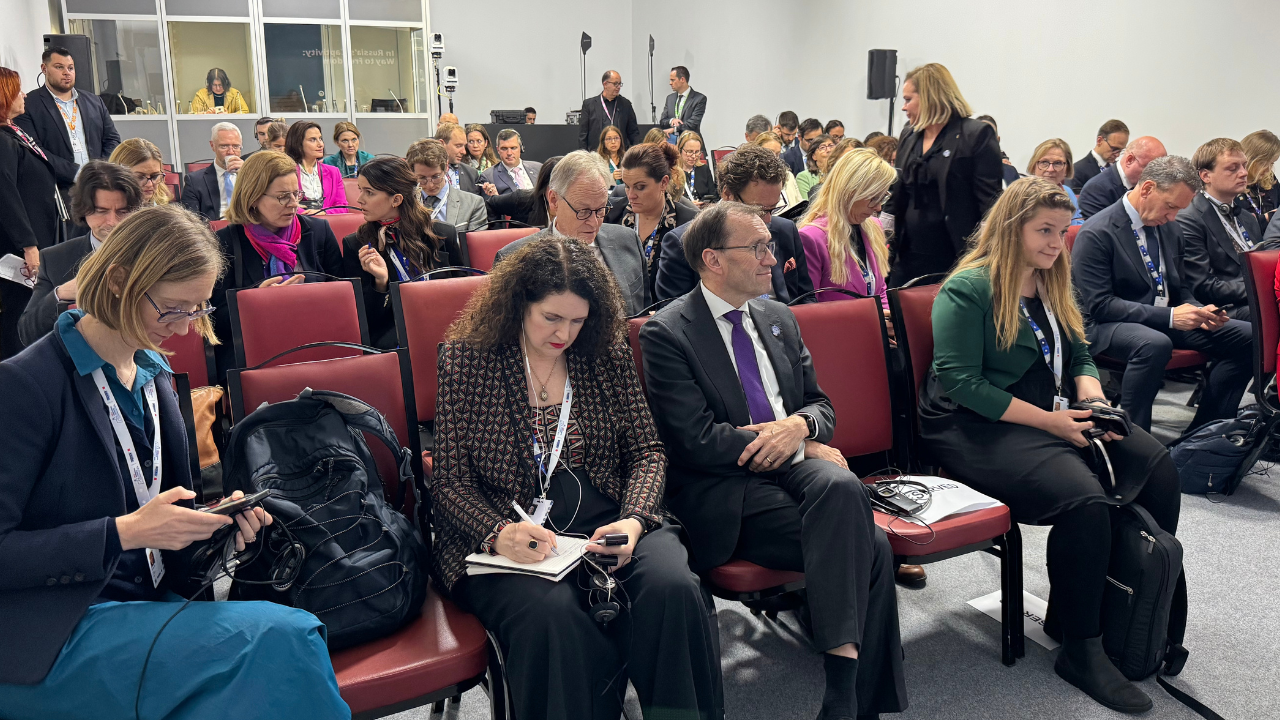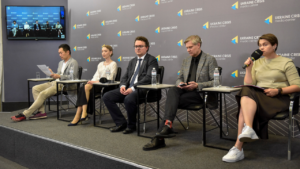The world must move to concrete steps to release Ukrainian civilians: results of the special event of the OSCE Ministerial Council

The international community should start working on the practical release of civilian Ukrainians illegally detained by Russia. This was discussed during the side event “In Russia’s Captivity: Way to Freedom,” which occurred within the framework of the 31st OSCE Ministerial Council in Malta on December 5-6. The event, initiated by the Permanent Mission of Ukraine to the OSCE and the Media Initiative for Human Rights, aimed to summarize the international community’s efforts on this issue and brought together more than 50 guests — representatives of OSCE participating states.
Opening the event, Mariana Betsa, Deputy Minister of Foreign Affairs of Ukraine, noted that the return home of thousands of civilians and children abducted by Russia is one of the priorities of President Zelensky’s Peace Formula, presented at the first Peace Summit in Switzerland.
— Ukraine is determined to rescue its citizens from Russian captivity. This is one of the the main points of our vision to restore a lasting and comprehensive justice, — said Mariana Betsa.

Speakers at the event hosted by the Permanent Mission of Ukraine to the OSCE and the MIHR, held during the OSCE Ministerial Council meeting in Malta. Photo: MIHR
As of December 2024, the MIHR has identified almost two thousand civilian Ukrainians illegally detained by the Russian occupation forces. Since 2022, the human rights organization has consistently promoted the idea of forming an international platform for the release of Ukrainians from captivity and launching the OSCE Moscow Mechanism for the persecution of civilian Ukrainians by Russia. These steps were implemented in 2023-2024. The May report on the results of the commission’s work under the Moscow Mechanism showed the systematic persecution of Ukrainians by the Russian Federation. It recognized it as a crime against humanity.
— Finally, at the level of OSCE experts, the world dared to call things by their proper name. But no report holds value without the political will and concrete steps to follow it. In the months since the publication of the Moscow Mechanism Report, Russia has returned to Ukraine the bodies of six civilians it killed in its prisons.
And when it comes to prisoners of war, we’re talking about hundreds bodies of prisoners of war. each of your countries has the capacity to show political will and implement its own plan to stop Russia’s crime, — noted Olha Reshetylova, the Head of the Media Initiative for Human Rights.
The human rights activist called on the participants to look for new non-conventional ways to release civilians from Russian prisons, including taking patronage over a certain group of detainees and creating monitoring missions from, for example, non-Western countries. According to Nariman Dzhelal, Deputy Chairman of the Mejlis of the Crimean Tatar people, recently released from a Russian prison where he had been held since 2021, monitoring groups could help improve the conditions of Ukrainians in captivity. At the event, he spoke about the torture and abuse he suffered in Russian prisons and called on the international community to act.
— We need to find mechanisms to save our people as soon as possible and not be afraid to go beyond what is already available. And most importantly, when we propose peace initiatives, we must think not only about the people we will save at the front – this is very important! But we also have to remember about those who will remain under occupation and risk becoming hostages of the Russian Federation, — Dzhelal addressed the audience.

Nariman Dzhelyal (left), Deputy Head of the Mejlis of the Crimean Tatar People, recently released from a Russian prison, and Olga Reshetilova (right), Head of the Media Initiative for Human Rights. Photo: OSCE
Olha Babych, wife of Oleksandr Babych, the mayor of Hola Prystan in the Kherson region, who was abducted by the Russians in 2022, also called on the delegates to take concrete steps to liberate civilians. Her husband’s whereabouts are currently unknown, and Russia is holding him incommunicado.
The idea of finding new effective mechanisms for releasing Ukrainians was supported by several representatives of OSCE participating states present at the event. For example, Espen Barth Eide, Minister of Foreign Affairs of Norway, which, together with Canada, leads the working group for the release of prisoners of war, abducted children, and civilians, said that the first practical steps were developed in October this year during the Ministerial Conference on the Human Dimension in Montreal:
— We came up with the Montreal Pledge. More than 70 countries accepted it, very strong and concrete massaging on what to say and also what to do with Russia. We also involved what is called Viena Mechanism where we formally asked Russia to ask certain questions about conditions in their prisons. No answer yet. Bur it was supported by vast majority of member states. We try to use all the instruments we have, could also add some new instruments to deal with this issues.

The side event was attended by over 50 representatives of OSCE participating states. Photo: MIHR
According to Kaspar Veldkamp, Minister of Foreign Affairs of the Netherlands, the key task in this context is to collect information about detained civilians, pass it on to international organizations and already launched mechanisms, and provide quality medical and psychological support to the released.
— We must support efforts to prosecute the war crimes and ensure that justice prevails. Countability is essential in preventing further violations. We are leading in restoring justice for Ukraine and we are determined to hold accountable all perpetrators of international crimes at Russia’s war against Ukraine, — Veldkamp summarized.
The MIHR expresses deep gratitude to the witnesses Nariman Dzhelal and Olha Babych for their courage in repeatedly telling their stories to the world. We also thank the Permanent Mission of Ukraine to the OSCE for organizing the event and the delegations of the partner states, without whose support it would not have been possible, namely 27 EU member states, Albania, Andorra, Bosnia and Herzegovina, Canada, Georgia, Iceland, Liechtenstein, Moldova, Montenegro, Monaco, North Macedonia, Norway, Switzerland, the United Kingdom, the United States of America and the EU Delegation.
With the financial support of the Czech organization People in Need, within the framework of the SOS Ukraine initiative. The content of the publication does not necessarily reflect their position.
Author: Anastasia Loza, communications manager at the Media Initiative for Human Rights






